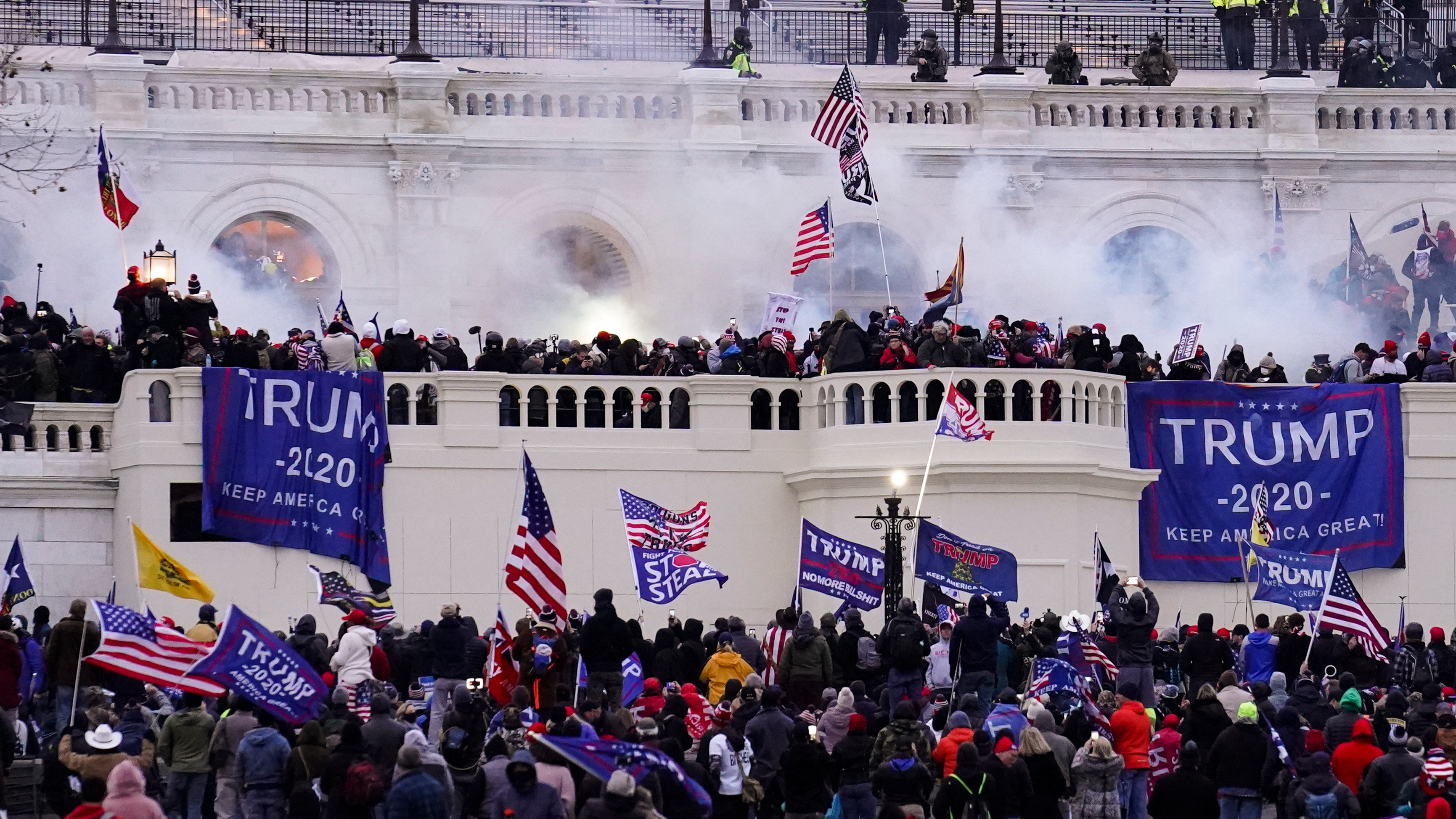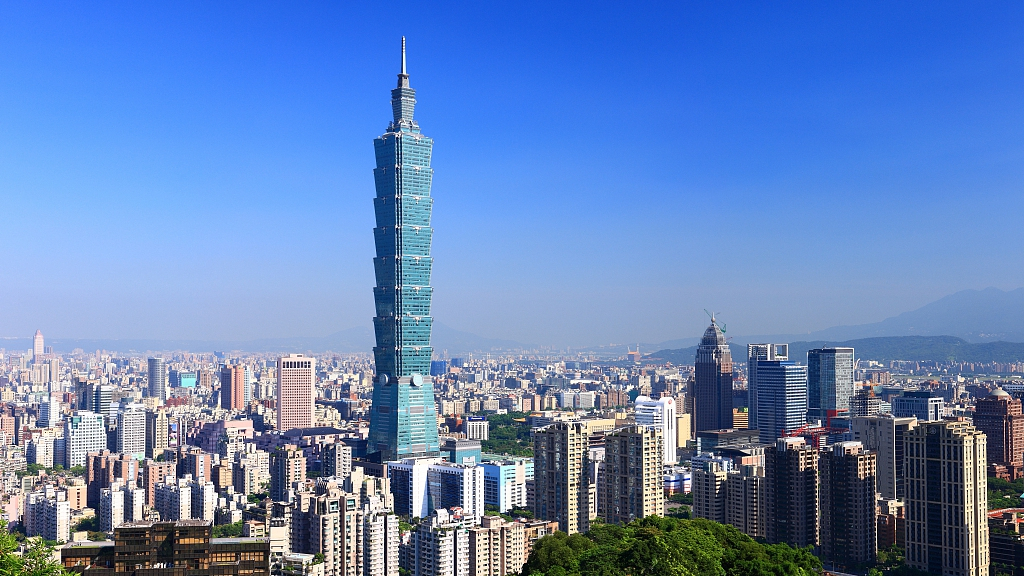
Violent protesters storm the U.S. Capitol in Washington, D.C., January 6, 2021. /AP
Violent protesters storm the U.S. Capitol in Washington, D.C., January 6, 2021. /AP
Editor's note: Andrew Korybko is a Moscow-based American political analyst. The article reflects the author's opinions, and not necessarily the views of CGTN.
America's fall from grace as the world's unipolar superpower was long in the making and entirely predictable by even the most casual observers, but this game-changing process has noticeably intensified after the events of the past week. The storming of the U.S. Capitol, which some American decision makers regard as an instance of "domestic terrorism," sent shock waves throughout the world by showing everyone just how politically unstable the country has become after outgoing U.S. President Donald Trump's last four years in office.
Now, however, he seems hell-bent on taking down the rest of the world with him following his latest foreign policy moves.
The most globally destabilizing of them was Secretary of State Mike Pompeo's decision over the weekend to lift the U.S.'s self-imposed restrictions on his country's relationship with China's Taiwan. In effect, this practically reversed the decades-long one-China policy, tacitly treating the island as a separate nation despite this being an illegal act of international aggression.
Quite clearly, the U.S. wants to provoke China into undertaking a decisive response in legal defense of its sovereign national interests that could potentially escalate military tensions in the last week of Trump's presidency in the worst-case scenario.

The Taipei 101 skyscraper in Taipei, Taiwan, southeast China.
The Taipei 101 skyscraper in Taipei, Taiwan, southeast China.
Other moves aren't as highly publicized but are nevertheless intended to be disruptive. The U.S. announced that it'll designate Yemen's Houthi rebels as "terrorists" and return Cuba back onto its list of "state sponsors of terrorism," thus further destabilizing the Mideast and the Caribbean by abruptly ending its former pragmatism.
Several interconnected and multi-leveled processes are at play here. The first is that America's internal turmoil has provoked a fierce power struggle among its elite, including those who are employed in its permanent military, intelligence and diplomatic bureaucracies ("deep state"). Secondly, the outgoing administration is trying to box Biden into continuing and even intensifying the hostile and disruptive policies that he'll inherit on January 20.
And finally, the last element of these processes is that the rest of the world is reacting on its own terms to what's happening, which contributes to ever more global uncertainty during this sensitive transition.
On the topic of transitions, two are presently unfolding. The most highly discussed one is of course the violent political transition of power in the U.S., which recently broke with its two-centuries-long tradition of transferring power peacefully. This transition is influenced by the larger global systemic transition from unipolarity to multipolarity wherein the U.S. is failing to responsibly ensure the transfer of power to the rest of the world as the decline of its international hegemony suddenly accelerates. There's no question that the U.S. is crumbling, but uncertainty exists about whether or not it'll take down the rest of the world with it during this tense time.
Historical comparisons can be insightful but are by their nature imperfect since each example is unique and no precedent can completely predict similar events that later follow. That said, it's useful to consider the dissolution of the Union of Soviet Socialist Republics (USSR) in 1991, which first became obvious in 1989 at the end of the Cold War but was also observable even a few years prior, especially with the benefit of hindsight. The U.S. is currently proceeding along a similar trajectory, particularly with respect to its nationwide political turmoil preceding the country's rapid fall from its international position, but it's here where America can learn an important lesson.

Thousands of Donald Trump supporters storm the U.S. Capitol building following a "Stop the Steal" rally in Washington, D.C., January 6, 2021. /Getty
Thousands of Donald Trump supporters storm the U.S. Capitol building following a "Stop the Steal" rally in Washington, D.C., January 6, 2021. /Getty
Former Soviet leader Mikhail Gorbachev could have plunged the world into chaos had he so chosen, but he instead decided to behave responsibly by ensuring that everything unfolded as peacefully as possible. He didn't threaten other countries, seek to disrupt global stability or cling to power after it became obvious that he couldn't hold on much longer. Outgoing President Trump would have done well to behave in a similar fashion, but it's here where Biden can improve upon his predecessor by taking responsibility and peacefully returning the formerly self-professed "exceptional" country back to the community of nations to which it belongs.
Nothing is being implied about the U.S. formally dissolving along its domestic administrative lines like the USSR did, but just that Biden has the historic chance to walk in the footsteps of the former Soviet Nobel Peace Prize winner by doing everything in his power not to take the rest of the world down while his own country crumbles.
While it's impossible for him to ensure that the process is entirely peaceful considering that domestic political violence has already been unleashed, as America's next commander-in-chief, what he can definitely do is can guarantee that this historically irreversible process doesn't plunge the rest of the world into chaos.
(If you want to contribute and have specific expertise, please contact us at opinions@cgtn.com.)

